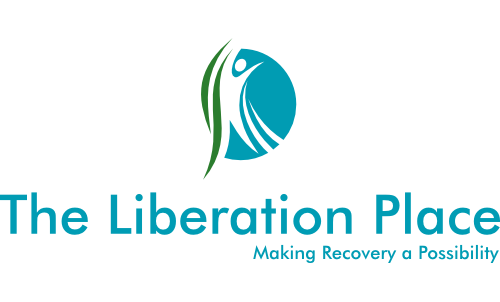Paying Attention to Positive Events
Paying attention to the things that we did well, or that went our way throughout the day can sometimes take a lot of effort. We may be completely absorbed with something else to notice the pleasant things that are happening all around us, or we may have trouble focusing on one thing because there are lots of other distractions going on. Remember it's important for us to build our ability to refocus on the things we do well, and the things that go our way when our mind wanders to all the negativity and criticism that may also be happening, in both the internal and the external world. Both positive and negative things happen dialectically on a regular basis, they co-exist consistently. For me, I just didn't have the ability to notice what was happening from a dialectical perspective. It takes work, and a conscious effort, to disengage the psychological filters that are drawing our attention to the activated stories in our system. These stories cause our focus to centre on the negative aspect of life in general. The childhood schema taken directly from our past, like mistrust, abandonment, defectiveness and social isolation are all contributing to the way we see the world right now.
If you’re someone who is living a Recovery Lifestyle, trying to change the tendency to use addictive, compulsive, or obsessive coping mechanisms, then your focus may only be on all the ineffective behaviours you have to change so you can Live the Life you Want to Live. This too can be extremely problematic. If all we do is focus on the things we aren’t doing well, then the parts of our personality that may already be living the Life we Want to Live will start to lose motivation and stop doing the things they’re already doing because of the internal narrative that’s connected to this lack of gratitude and appreciation. Paying Attention to Positive events helps build internal motivation. Most of us have trained our system to be driven by the Instant Gratification obtained from things in the external world. When we acknowledge what we do in a day that went the way we wanted it to go, or recognize how we took an action in line with our true core values and beliefs, one that helped us to Live the Life we Want to Live, it’s important to spend some time paying attention to these things, rewarding our personality system with an internal “pat on the back,” showing gratitude and appreciation for the parts that helped us to be our true authentic self.
"This can be particularly difficult when we are dealing with parts of our personality that are angry, resentful, or bitter about the way things are, and it may even be true that these parts have the belief that feeling better about our lives will mean we have “given in” in some way."
~Steven Morris RP.
This isn’t an easy thing to do though, as it’s often the case that we can come up with a massive amount of evidence for the negative aspects of life because our system is set up to see them all around us. In fact, when we are in an activated state, our negative childhood schema can point out, time and time again, how the number of positive events in our lives are much smaller than the number of painful events. They draw our attention to the evidence that yes, that one thing did go well, but look at all the things that didn’t go the way you wanted them to. If our internal critics are dominant in our system, this is where they go to town, bringing the story to the forefront of our thinking. When this is the case, it can be hard to tear our mind away from this particular point of view. It can be particularly difficult when we are blended with parts of our personality that are angry, resentful, or bitter about the way things are. It may even be true that these parts have the belief that feeling better about our lives will mean we have “given in” in some way.
Practicing the skills of Mindfulness will help us with unblending from these parts, using the skills of Distress Tolerance can help us disconnect from the ruminating thoughts, or bring us back into a window of tolerance so we can process what’s happening, rather than what we think is happening because of the active schema. Checking the Facts can help us to see the psychological filters and the schemas that might be in place. In these types of situations, refocusing our attention on the positive aspects of events is a great example of Taking an Opposite Action. Completing a Pros-and-Cons worksheet can also activate the motivation we need to actually take the Opposite Action. This, in turn, will help with building our awareness for the new positive and pleasant experiences.
"Using the skills of Distress Tolerance can help us disconnect from the ruminating thoughts, or bring us back into a window of tolerance so we can process what’s happening, rather than what we think is happening because of the active schema."
~Steven Morris RP.
For example, if I’m angry at someone, blended with a part that is rigidly attached to a particular story, I get stuck in the thoughts about how terrible this person has treated me, how it’s not fair, and how I need to lash out and do something to change things in my favour. I’m ruminating on the thoughts of this Angry Child in my system and my focus is only on this particular point of view. If I get like this when I’m out doing other things not connected to that situation, it’s hard to pay attention to say the wonderful meal I am eating with my family, or to enjoy the movie that I might be watching with my friends.
As I said before, positive events are not only limited to the things that happen around us. They are also related to the things that we do and the things that we achieve. No matter how small and insignificant these things may seem to be, it is incredibly important to mindfully notice them. Research, not only conducted in the development of Dialectical Behaviour Therapy, but also in a wide variety of unrelated studies, shows that paying attention to the things we accomplish each and every day builds internal motivation to do more. We only have to look at the work of people like Andrew Huberman to find the evidence for this. This well known and world renowned neuroscientist and professor of neurobiology at Stamford University, has a number of talks available online where he explains the way we build internal motivation by acknowledging the little wins we have, every single day.
So how do we shift our focus on to the things we do well so we can acknowledge their presence on a regular basis? Having a solid foundation with routine and structure can help, it’s also important to make sure that when we are making the effort to notice these positive and pleasant things, we do so when we authentically, with genuine appreciation and gratitude. Mindful Awareness is key, Observing and Describing what’s happening, experiencing the moment as it is, removing the judgement or opinion that we need to be somewhere else, and participating in acknowledging the event to the best of our ability. Try keeping a journal, or diary of noticing positive events, and add to it every day, and use it to bring gratitude and appreciation to the parts of your personality that are Living the Life you Want to Live, right now.
"Paying Attention to Positive Events has been an essential part of my daily routine for a really long time now. So much so, that I hardly notice that I do it subconsciously."
~Steven Morris RP.
Learning the skills of DBT in combination with Schema Therapy gives us the ability to notice our childhood stories and disengage from the filters that only allow us to see the world from the subjective, and rigid point of view of the past. For me, Paying Attention to Positive Events has been an essential part of my daily routine for a really long time now. So much so, that I hardly notice that I do it subconsciously. It started with my daily One Mindful activities, where I would pay attention to the moment, and notice how enjoyable and pleasant this experience was. It progressed into a deliberate action in my nighttime check in. I would purposely pay attention to my accomplishments, acknowledging the parts that helped me achieve the things I had achieved throughout the day, no matter how small other parts of me judged these things as.
In the PDF at the bottom of the website page attached to this video, you will find a worksheet associated with the nighttime check in routine I developed for myself. Use this as a template to notice your accomplishments on a daily basis. When you complete it, walk yourself into your wise mind, or your safe place, and practice gratitude and appreciation for the parts of your personality that took the actions you noticed. Practice One Mindfulness to be in the moment and notice pleasant events that are happening all around you, all the time. While it’s important to notice the things we want to change, as this is how we grow, focus on the things you do well, the little wins you have every single day, no matter how small and insignificant they may seem to be. This is how we build Internal Motivation to Live the Life we Want to Live.
Download the PDF of this page
Follow us on Social Media





